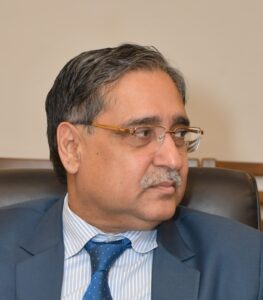
Uzbekistan, strategically situated at the crossroads of Central Asia, stands as a nation of immense historical, cultural, and economic significance. Revered for its Silk Road heritage, awe-inspiring landscapes, and swiftly developing economy, Uzbekistan presents unmatched opportunities for both tourism and investment. With a focus on regional collaboration, the country is steadily emerging as a crucial partner for Pakistan in the realms of trade, connectivity, and cultural exchange.
As of 2024, Uzbekistan’s population stands at approximately 36 million, making it the most populous nation in Central Asia. The population is predominantly ethnic Uzbek (84%), with smaller communities of Russians, Tajiks, Kazakhs, and Tatars. The majority of the population practices Sunni Islam, a faith that profoundly influences the country’s cultural and societal fabric. With nearly 60% of the population under the age of 30, Uzbekistan is endowed with a youthful, dynamic workforce and a burgeoning consumer market, akin to that of Pakistan.
Uzbekistan is one of the fastest-growing economies in the region, driven by a series of strategic economic reforms. The official currency is the Uzbekistani Som (UZS). In 2023, the country’s Gross Domestic Product (GDP) was estimated at $86 billion, with a growth rate surpassing 5% annually. The per capita income stands at approximately $2,400, highlighting the country’s transition toward high-value industries. Key sectors driving the economy include agriculture, textiles, mining, energy, and tourism, while emerging fields such as information technology (IT), pharmaceuticals, and renewable energy are also gaining significant momentum.
Uzbekistan has made considerable strides in improving the quality of life for its citizens. Life expectancy has risen to 71 years, a direct result of enhanced healthcare infrastructure. The country boasts a literacy rate of over 99%, supported by a robust education system, including a growing focus on vocational training. Urban centers such as Tashkent have seamlessly integrated modernization with the preservation of historical landmarks, offering a harmonious blend of contemporary amenities and cultural richness. Additionally, the cost of living in Uzbekistan remains relatively low, offering a comfortable lifestyle to its residents.
Pakistan and Uzbekistan share a deep-rooted historical bond, stemming from their shared Islamic culture and the rich legacy of the Silk Road. Over recent years, their relationship has evolved into a strategic partnership, emphasizing economic cooperation, regional connectivity, and cultural exchange. Projects such as the Pakistan-Afghanistan-Uzbekistan (PAKAFUZ) railway are aimed at connecting Uzbekistan to Pakistan’s ports, fostering regional integration. Additionally, strengthened agreements concerning logistics, tariffs, and customs processes are facilitating an uptick in bilateral trade. Joint initiatives in education, tourism, and the promotion of shared heritage further emphasize their common Islamic history.
Uzbekistan’s tourism sector is thriving, drawing millions of visitors annually with its historical and natural treasures. Samarkand, home to the UNESCO World Heritage site of Registan Square, is renowned for its splendid Timurid architecture. Bukhara, often referred to as a living museum, houses more than 140 monuments, including the majestic Ark Fortress and the Kalyan Mosque. Khiva, with its perfectly preserved city walls, offers a vivid glimpse into the grandeur of the Silk Road era. Uzbekistan is also a significant religious destination for Muslims, with sites such as the mausoleum of Imam Bukhari attracting pilgrims from across the globe. The country’s diverse topography provides abundant opportunities for ecotourism, hiking, skiing, and adventure tourism.
Uzbekistan’s progressive market reforms and investor-friendly policies have positioned it as an attractive destination for foreign investments. Promising opportunities exist in strategic sectors such as agriculture, where Uzbekistan is a global leader in cotton and horticulture, and in mining, with the country being rich in gold, uranium, and rare earth minerals. The renewable energy sector holds immense potential, with solar and wind energy projects prioritized for development. Moreover, there are substantial prospects in the tourism infrastructure, with growing demand for luxury resorts, ecotourism ventures, and modernized facilities. Special Economic Zones (SEZs) have been established to offer tax incentives, simplified regulations, and infrastructure support for key industries such as textiles, automotive manufacturing, and electronics.
For Pakistan, Uzbekistan is not merely a trade partner; it is a vital gateway to Central Asia and a key collaborator in advancing regional stability and growth. By capitalizing on their shared history and mutual economic interests, both nations can unlock new possibilities in tourism, trade, and investment, setting the stage for a prosperous and interconnected future.
H.E. Alisher Tukhtayev, the Ambassador of Uzbekistan to Islamabad, is an exceptionally dynamic individual deeply committed to strengthening bilateral diplomatic relations and fostering trade between Uzbekistan and Pakistan. I had the honor of welcoming him to the Islamabad Chamber of Commerce and Industry (ICCI), accompanied by a distinguished delegation from his country. His visit underscored the shared vision of deepening economic cooperation and fostering stronger ties between our nations. (The writer is Secretary General at Islamabad Chamber of Commerce and Industry (ICCI) enjoys expertise on Corporate Laws, Current Affairs and author of many books).








